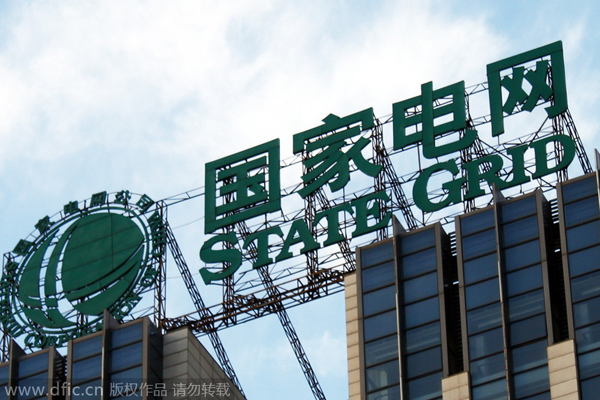Watchdog launches new anti-graft drive
By Wang Zhaokun (chinadaily.com.cn) Updated: 2015-02-28 13:56
 |
|
A signboard of State Grid Corporation of China is pictured in Liaocheng, east Shandong province, 12 November 2012.[Photo/IC] |
China's top anti-corruption watchdog launched its first round of inspection work after the Chinese New Year holiday, targeting the country's State-run conglomerates.
The powerful Central Commission for Discipline Inspection (CCDI) said Friday in a statement on its website that three inspection teams were already dispatched to State Grid Corp of China, China Shipbuilding Industry Corp and China Huaneng Group.
The three companies were part of the 26 large State-owned enterprises (SOE) the CDDI chose to inspect in its latest anti-corruption drive.
Others to be targeted in this round of inspection work include China National Petroleum Corp, China National Offshore Oil Corp, China Power Investment Corp and China Mobile Communications Corp.
But the CCDI's latest round of inspection of SOEs is different from previous ones as it decided to expand the inspection from one month to two months. Also, each inspection team is tasked with probing two companies instead of only one, which is likely to improve the efficiency of their work.
Wang Qishan, a standing member of the Party's Politburo Standing Committee and chief of the CCDI, said in a conference earlier this month that the watchdog would focus the anti-graft campaign on China's large State-owned enterprises.
All of the 31 provinces, autonomous regions and municipalities were already covered by the CCDI's previous four rounds of inspection work in the two years after the 18th Party Congress.
The fifth plenary session of the 18th CCDI, which concluded on Jan 14, set the task of inspecting all major SOEs this year, making combating corruption in SOEs one of the priorities for 2015.
Previous inspections over the past two years covered 14 major SEOs, which led to the fall of over 70 SOE executives in 2014.
Wang has said that judging from clues from the CCDI's previous investigations, SOEs suffer from common problems in their corruption control system, including buying and selling positions, embezzlement from dealing in materials and resources, rule-bending in project bidding and factionalism and nepotism.
- Govt encourages people to work 4.5 days a week
- Action to be taken as HIV cases among students rise
- Debate grows over reproductive rights
- Country's first bishop ordained in 3 years
- China builds Tibetan Buddhism academy in Chengdu
- Authorities require reporting of HIV infections at schools
- Typhoon Soudelor kills 14 in East China
- Police crack down on overseas gambling site
- Debate over death penalty for child traffickers goes on
- Beijing to tighten mail security for war anniversary







